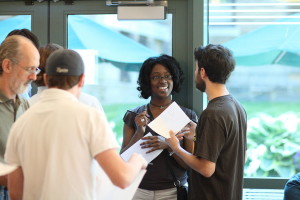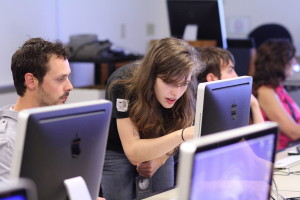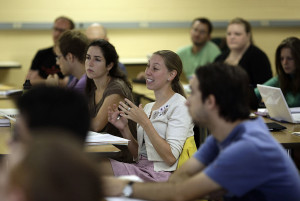Our work makes a difference. Here’s how.
We engage students in solving real-world problems.

Students who write Wikipedia articles solve a real-world problem. Rather than writing a term paper that ends up in a drawer, they contribute to a knowledge base the world uses daily. It’s service learning that actually makes a difference.
Through active learning, students develop a deeper understanding of their subject. They are more motivated to produce quality work, knowing millions could read it. They improve their research, writing, and critical thinking skills along the way.
That’s why educators across the United States and Canada are implementing Wikipedia assignments for their courses. They know that student editors develop competencies useful in higher education, their careers, and their lives.
We provide more people with access to knowledge.
![We open up access to information, wherever and whenever people need it. [1]](http://wikiedu.org/wp-content/uploads/2015/02/Johannesburg_-_Wikimedia_Zero_-_258A0151-300x200.jpg)
Even in the age of the internet, large amounts of information are bottled up. Publishing houses often act as gatekeepers, keeping information accessible only to those who can afford to pay. We believe that access to information is a human right.
Improving content on Wikipedia means improving lives. When student editors share their knowledge, they increase access to information that would otherwise be out of reach.
We increase digital literacy, a key skill of the 21st century.

The internet is emerging as the primary source of knowledge about the world. Evaluating this information is a core competency for this generation of students.
Contributing content to Wikipedia encourages students to examine and critique a central source of online information. Students improve their digital literacy skills by evaluating the quality of Wikipedia’s information. As contributors, they summarize and communicate information from sources they have identified as reliable.
Writing for Wikipedia challenges students into analyzing and interpreting information for fairness, accuracy, and reliability. They give students the skills to question unreliable information, rather than passively accept it.
We diversify Wikipedia’s content.
Studies have shown that Wikipedia’s editor community is predominantly young, white, and male. Information on Wikipedia often describes the world from that perspective.
Wikipedia content quality is weakest when it doesn’t catch the interest of those editors. Articles on female novelists, or places in Africa, are alarmingly underrepresented.
We believe Wikipedia should reflect the full spectrum of human diversity. That’s the only way to ensure that Wikipedia reflects the entire world, not just one part of it.
68% of our student editors are women. And many of the articles our students write fill content gaps related to women. That helps Wikipedia provide knowledge relevant to more people, while reflecting a broader range of perspectives.
Find out more…
[1] = Johannesburg – Wikimedia Zero – 258A0151” by Omaranabulsi – Own work. Licensed under CC BY-SA 3.0 via Wikimedia Commons.
